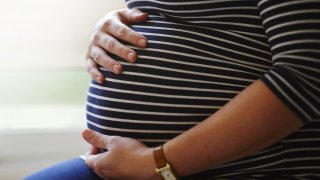
Babies born to mothers diagnosed with cannabis use disorder are more likely to experience negative health outcomes than those without the disorder, according to findings published Thursday by UC San Diego researchers.
Researchers from UCSD's Herbert Wertheim School of Public Health and Human Longevity Science examined nearly five million live births that occurred in California between the years 2001 and 2012, during which diagnoses of cannabis use disorder rose.
Cannabis use disorder is defined as continued cannabis use despite consequent, clinically significant impairments. Not all people who use marijuana meet the criteria for cannabis use disorder, though the study's authors stated the actual incidence of cannabis use disorder is likely higher than reported numbers.
The findings were published in the journal Addiction, and the study was funded by the National Institute on Drug Abuse, part of the National Institutes of Health.
Get San Diego local news, weather forecasts, sports and lifestyle stories to your inbox. Sign up for NBC San Diego newsletters.
Of the 4.83 million births studied, 20,237 women were discharged after delivery with a cannabis use disorder diagnosis, according to UCSD researchers. They found that those women's babies were more likely to be born preterm, have a low birth weight and be small for their gestational age -- all factors that can require greater or more intense medical care or presage later health issues.
Infant mortality risks was also greater for those babies, though the researchers said those instances were rare.
Local
Yuyan Shi, an associate professor at the Herbert Wertheim School of Public Health and one of the study's authors, said: "Because we are looking only at medical records, there is a lot we don't know about the mothers and infants in this study, but our analysis supports the recommendation that health professionals screen for and address cannabis use disorders in their pregnant clients -- to protect both their health and potentially the health of their infants."
According to UCSD, it is not currently standard practice during pregnancy health care to screen for cannabis use or related disorders, though marijuana is the most commonly used illicit drug by pregnant women to self-treat depression, anxiety, stress, pain, nausea and vomiting, often during the first trimester. It is also not a standard of care to provide counsel on the lack of safety data around cannabis use during pregnancy.
Sign up for our Breaking news newsletter to get the most urgent news stories in your inbox.



